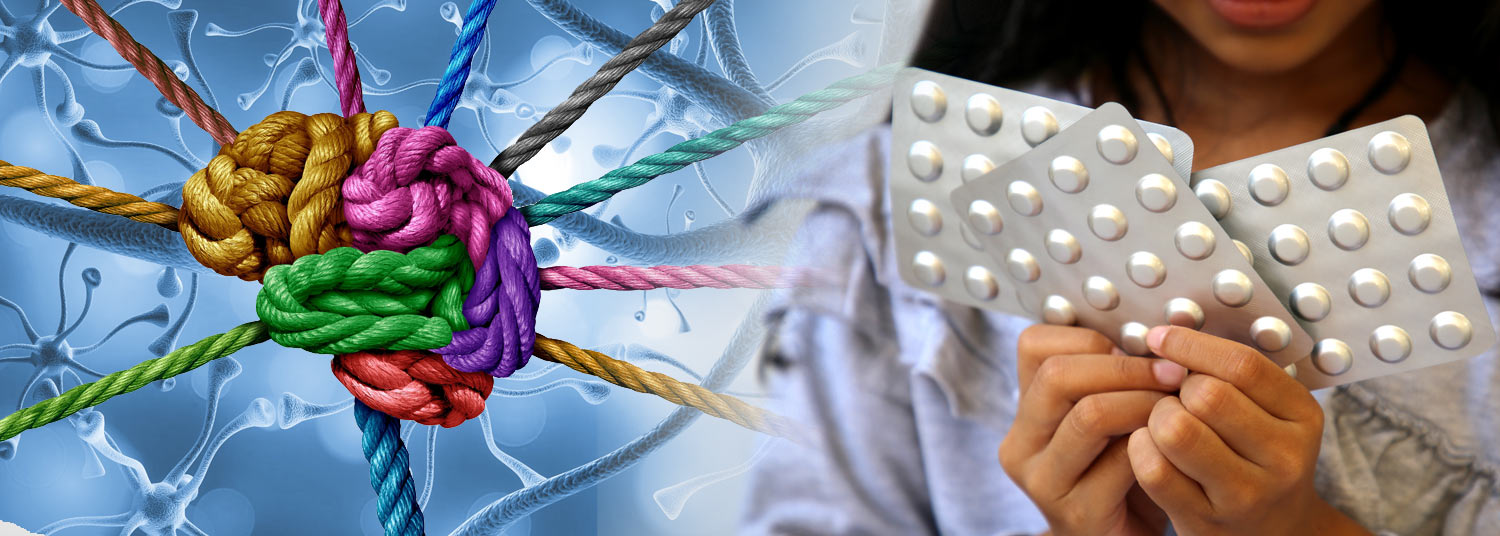April 02, 2025 | Deborah Kotz
Individual Differences in How Brain Circuits Wired Provide Important New Clues
Nearly 16 million American adults have been diagnosed with attention deficit hyperactivity disorder (ADHD), but evidence suggests that more than 30 percent of them don’t respond well to stimulant medications like Ritalin and Adderall. A new clinical trial provides a surprising explanation for why this may be the case: There are individual differences in how our brains circuits are wired, including the chemical circuits responsible for memory and concentration, according to a new study co-led by the University of Maryland School of Medicine (UMSOM) and performed at the National Institutes of Health (NIH) Clinical Center.
Our brain cells have different types of chemical receptors that work together to produce optimal performance of brain function. Differences in the balance of these receptors can help explain who is likely to benefit from Ritalin and other stimulant medications. That is the finding of the new research published in the ournal and funded by NIH.

To conduct the trial, researchers conducted brain scans in 37 healthy adults without ADHD who performed concentration and memory tasks. The researchers used functional MRI scans to measure areas of brain activation during these tasks after the volunteers took a placebo on one day, and after they were given the drug Ritalin on a different day. They also performed PET scans to measure levels of the brain chemical dopamine and different types of dopamine receptors, which are involved in focus and concentration.
“We thought that the amount of dopamine Ritalin produced in a person would help us predict whether that individual would have enhanced attention performance, but what we found is more complicated,” said study co-corresponding author Assistant Professor of Psychiatry at the University of Maryland School of Medicine. “Instead, we found the types of dopamine receptors on the brain cells, and the ratio in which they are found, better predicted cognitive performance.”
Study participants who had a higher ratio of D1-to-D2 brain dopamine receptors performed better on memory tasks during baseline testing compared to those who had a higher ratio of D2 receptors compared to D1 receptors.
“Balanced signaling between D1 receptors and D2 receptor in the brain is needed for optimal brain function and variations in their relative signaling contributes both to differences in baseline cognitive performance and to why some people improve whereas others deteriorate their performance when given Ritalin,” explained study co-corresponding author , chief of the Laboratory of Neuroimaging at NIH’s National Institute of Alcohol Abuse and Alcoholism. “What we found was the those with a higher D2 to D1 ratio had worse baseline cognitive performance but experienced a greater improvement when taking Ritalin compared to a placebo.”
Interestingly, in the placebo session, those with a higher level of D1 receptors compared to D2 receptors tended to perform better on memory tasks with corresponding high levels of activation in the prefrontal cortex of the brain, as seen on functional MRI imaging scans. They did not, however, experience a significant improvement in their abilities after being administered either a placebo or Ritalin, even though Ritalin led to increased levels of dopamine.
“A significant number of people without ADHD are taking stimulant medications in an unprescribed way to try to increase their performance, and it was important for us to gain an understanding of what these medications were doing to the brain,” said Dr. Manza who is also a researcher at the UMSOM’s . "Our findings suggest that many of these people may not benefit from taking these medications, while taking on the risks of using stimulant drugs without medical supervision."

The Kahlert Institute brings together leading addiction experts to collaborate and create the synergy necessary for systemic change. They include neuroscientists studying the brain mechanisms underlying addictions and physician educators working to train a new generation of medical students and residents
Next on the researchers’ agenda: They would like to replicate the study on people who have been clinically diagnosed with ADHD to look at their D1/D2 receptor ratio and determine whether they tend to have a lower level of D1 receptors overall compared to those without the disorder.
“It would be interesting to identify whether there is a subgroup of individuals with ADHD who have high levels of D1 receptors and determine whether they are more likely to be treatment-resistant to stimulant drugs like Ritalin,” said , the John Z. and Akiko K. Bowers Distinguished Professor and Dean, University of Maryland School of Medicine, and Vice President for Medical Affairs, University of Maryland, Baltimore. “That could aid in our efforts to personalize care for these individuals and seek more beneficial treatments including cognitive behavioral therapies.”
Research reported in this press release was supported by NIH’s National Institute of Alcohol Abuse and Alcoholism. The content is solely the responsibility of the authors and does not necessarily represent the official views of the National Institutes of Health.
Contact
Deborah Kotz
[email protected]


